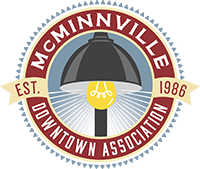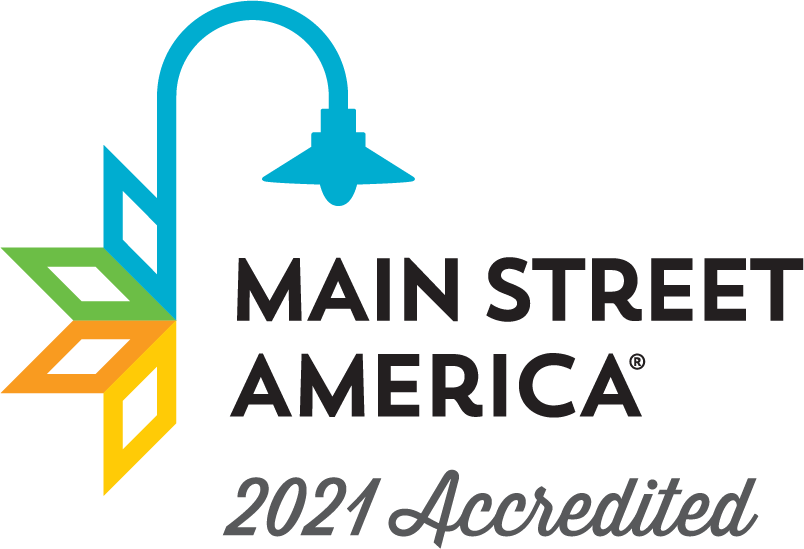OVERVIEW
Vendors that apply for the UFO Festival undergo jury selection.
Applications are processed on a first-come, first-served basis & must adhere to event policies:
- All event participants must adhere to the event theme, get creative and have fun!
- Any amplified sound (live or recorded), must be approved in advance.
- You may not sublease your booth. Any changes to products, prices, activities, music, or participation must be approved by MDA prior to the event.
- All booths must have a minimum of one person present during all event hours, early tear down is not permitted.
- Promotion of your product or service must be confined to your booth space.
MDA is a nonpartisan organization. Amplified sound cannot be used to engage in proselytizing, preaching, political campaigning or recruitment.
McMinnville Downtown Association & Zero Waste McMinnville have partnered to make McMinnville events waste-free. Your participation is key to achieving this. All products provided to customers are strongly encouraged to be packaged in recyclable, reusable, or compostable materials.
Participation
VENDOR RESPONSIBILITIES (as stated in the Vendor Agreement)
- You must comply with all applicable electrical, fire, and health department regulations and all city, county and state and federal laws
- You must not bring any unauthorized vehicles, trailers, or deliveries into the selling area during event hours
- You must have a working fire extinguisher on site
VENDOR BOOTH SPACE
We provide a designated 10 x 10 space ONLY. You must provide all items needed for your booth: canopy, table, chairs, etc.
EVENT HOURS
VENDORS ARE EXPECTED TO REMAIN OPEN AND OPERATING DURING THESE HOURS
- Saturday, May 20 – 10am to 6pm
- TAKE DOWN – no early removal allowed
- Vehicles will be allowed in the event area on Saturday May 20th, starting at 6:10pm
- All structures, product, trash, etc. must be removed by 9:00pm
Event Day
QUESTIONS AT THE EVENT
Visit the MDA Event Information Booth located at the US Bank Plaza (Third and Davis)
SET UP
Saturday, May 20th (Vendors will be informed by end of April as to which section you are in and where to report.)
Set-up begins at 7:00am. Please be fully set up by 10:00am
All vendors must check in with the on-site Event Coordinator or section coordinator
Please unload your vehicle and remove it from the area as soon as possible to allow others to unload
Electrical Power will be at your booth space AS REQUESTED ON YOUR VENDOR APPLICATION
PARKING
- FREE vendor parking is available at the public parking garage at 5th and Evans St. or on side streets OUTSIDE of the Historic District (Historic District: Adams to Johnson/Lafayette, 2nd, 3rd, and 4th St.)
- Vendors may NOT park on the street, in a public parking lot, or business parking lot within the Historic Downtown District
- Temporary parking for loading and unloading in the Event Area is allowed
WHAT TO EXPECT
- Garbage Service: please empty your booth garbage and/or recycling in appropriate zero-waste containers
- A Waste Water (gray water) unit is located downtown. Do NOT dispose of any gray water in the portable restroom, in the streets, or storm drains
- Clean water is available for vendor usage at designated locations
- Ice may be purchased from Harvest Fresh Grocery at 3rd and Cowls St.
- Food vendors will be required to adhere to the Zero Waste standards outlined below
McMinnville Zero Waste Policy
Americans produce enough landfill waste to fill 86,000 football fields of 6-foot-deep compacted trash annually. To help combat this, the McMinnville Downtown Association is committed to promoting Zero Waste events. Being zero waste means choosing environmentally friendly products for product packaging, food vending, or bagging and diverting at least 90% of single-use materials from landfills and incinerators to recycling or composting. All vendors in McMinnville Downtown Association Events are required to provide environmentally responsible product packaging and ancillary materials wherever possible.
All materials provided to customers should be sustainable, recyclable, or compostable as much as possible. Food vendors especially must be aware of the tableware provided to customers. Our goals are to maximize the use of compostable tableware, utensils, takeout containers, and product packaging/bags to minimize the amount of plastic waste. Note that little to none of the single-use tableware and utensil items are recyclable: they are either compostable or go to the landfill.
Approved Recyclable / Compostable Products
- Reusable shopping bags
- Checkerboard food trays
- Paper or cardboard takeout containers
- Paper napkins
- Paper plates/bowls
- Chinet
- AJM packaging
- Any all-paper plates can be composted by Recology’s process.
- Sugarcane fiber products
- ** Corn or Potato starch “compostable” products such as Taterware™ are great, but unfortunately not compostable by Recology’s process.
- Paper Straws
- Wood/Bamboo utensils (i.e. forks, spoons, knives)
- Wooden toothpicks or skewers
- Checkerboard wrapping paper, or other paper that does not contain plastic.
- Unlined paper cups
- “Bare” cup by SOLO
- Primeware products
- Equal Exchange cups
- These all-paper cups are lined with an Ingeo bioplastic that is fully compostable in this small amount.
Borderline Products
These are products that we would prefer not to be used if possible, as they are not locally recyclable. Either they can be recycled or composted at a different facility or there is simply no viable alternative as yet. Use of any materials essential to your business operations that are not locally recyclable or compostable and must be transported to outside recycling facilities will incur a nominal disposal fee of $5.00 per market.
- Clear plastic cups marked with #1, #2Plastic-cup lids
- There is no viable alternative for the plastic-cup lids at this time.
- Cups made from Ingeo bioplastic are compostable, but not by Recology, so they are not recommended.
- Paper bags
- Paper bags are preferable to plastic in that they are compostable, however, the number of trees and freshwater used in their manufacture make them unsustainable for single-use consumption.
Prohibited Products
- Anything made from Styrofoam.
- Fold-Pak or BioPak food containers due to the shiny plastic lining that is not compostable.
- Plastic Utensils
- Disposable single-use plastic bags
- Plastic Straws
- Non-recyclable plastic cups
- Plastic stir-sticks and sample cups: There are wood & paper alternatives available.
- Individual garbage cans for public use.
- All waste at the MFM must be separated into recyclable, compostable, and landfill categories. If you have waste disposal containers at your booth, you must ensure these materials are separated and bring them to the Zero Waste booth at the end of the market for proper disposal.


